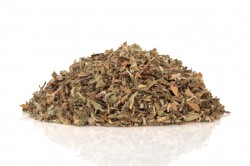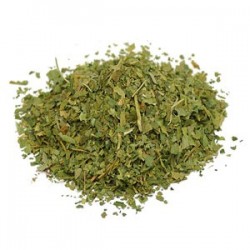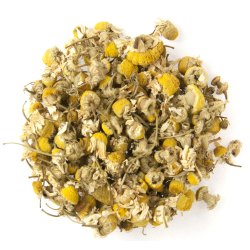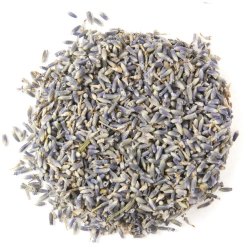- Brewing & Distilling
- Caffeine Free
- Culinary
- Fair Trade
- Medicinal
- Organic
- Sprouting Seeds
- Tisane
- Viable Seeds
- Wildcrafted
Free Shipping $69+
Valentine's Day Discount 25%
Mullein
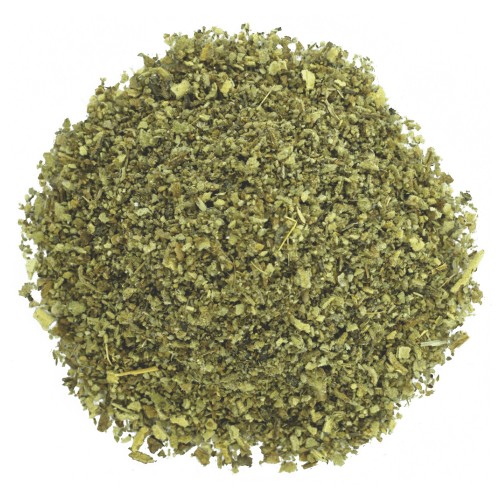
Organic Mullein (Verbascum Thapsus) has a long history of use as an herbal remedy.
Mullein is a wildflower native to Europe and Asia. It's high mucilage content makes it particularly effective as a tea is known for having astringent, sedative, and relaxing properties.
Depending on the strain, the mullein plant is a biennial or a perennial plant that grows up to three meters in length. When flowering, the plant is fixed with dense rosettes of leaves, with the stalk of the flowers shooting straight up. Biennial strains tend to flower early in the year, with the leaves growing in a spiral arrangement. Most strains of mullein are also glabrous – without fine hairs. When blooming, the mullein plant has bright yellow, symmetrical petals. Orange, purple, white, and brown petals are also common. Most of the active ingredients are in its leaves, which is usually used for tinctures and teas.
The mullein plant has been used in landscaping, gardening, and traditional medicine. The plant is valued for its narrow structure, as well as for its ability to flower for an extended period of time – especially when compared to other flowering plants. It flowers even in poor quality soil. Mullein plants are so popular, that since the year 2000, a number of hybrid strains have come out with increased following frequency, shorter heights, and the tendency to outlive wild mullein plants. The plant has a long history for its medicinal properties. Native Americans have used the mullein root to deaden captured fish due to its high levels of rotenone, which is slightly paralytic to fish. Moccasins were lined with large mullein leaves and was thought to protect against evil spirits. The flowers have been used in Austrian medicine as a treatment for respiratory disorders.
In traditional medicine, mullein plant was used for congestion problems. The leaves were thought to be used by Natives for congestion and dry coughs, as the mullein plant and its leaves are an excellent expectorant. An expectorant helps the lungs expel mucus, foreign material, as well as loosen up any impacted phlegm and mucus along the walls of the lungs and sinuses. Mullein gently stimulates coughing. Mullein helps augment the body's immune system and natural responses to foreign pathogens by coughing. Mullein teas and extracts were also used by Native peoples, with even the dried leaves used for smoking. Mullein also combines well with other types of herbs and leaves, like wild lettuce.
The mullein plant is also an excellent remedy for problems pertaining to the lymphatic system. Many herbalists note that applying a compress made out of herbs like mullein can help mitigate swelling of the glands. Creating a paste of mullein leaves and the stalk, then applying it to swollen lymph nodes can help reduce swelling. Swollen lymph nodes tend to occur due to a present infection, as it indicates that the body is currently fighting a contagion. The swelling can be uncomfortable, creating areas of tenderness. A paste of mullein leaves and warm water can help alleviate some of the swellings. In folk medicine, the mullein root would also be taken internally, to help relax the inflammatory response. Even the flower of the mullein plant can be particularly beneficial for the lymphatic system as ancient herbalists use the root for its pain relieving qualities.
Mullein also demonstrated the ability to help with urinary ailments. In addition to being beneficial to the lymphatic system, mullein also has the ability to help with urinary incontinence and control due to a swollen prostate. Mullein has the ability to strengthen the trigone sphincter, which is located at the base of the bladder. It also has a soothing, mildly diuretic properties. The diuretic effect has a mild astringent-like affect to the mucosa of the bladder. It does not overstimulate the bladder, but it gently stimulates the body to urinate, which is a naturally cleansing mechanism of the body. The mullein root has been noted to be particularly beneficial for those managing mild forms of urinary incontinence, and benign bladder infections.
Mullein extract.
The mullein extract is a concentrated infusion made from the leaves and flowers of the plant. Used in traditional medicine, the extract can sometimes be used in a tea to give it health benefits as well as a taste. The extract tends to be particularly popular for those who are suffering from respiratory inflammation, as it helps to alleviate the pain associated with these type of infections. They can also help with ear infections and ear aches. The extract is also a mild sedative, with many using as a non-habit-forming type of sleep aid. The active ingredients in the extract are coumarin, mucilage, and flavonoids. All of these are a type of antioxidant. Antioxidant attaches itself to free radicals, helping to nullify its damaging effects. Free radicals are known to cause dangerous cell duplication, which can sometimes create tumors. Most of these antioxidants transfer over to the extract when it is properly prepared. It is best to purchase extract from a trusted manufacturer, as they will use quality mullein plants. Purchasing extract from an established manufacturer will ensure standardized production, with them being willing to certify the exact levels of active ingredients in the extract. To obtain the extract, the leaves and flowers are harvested at its peak. Then a blend of the leaves and flowers are steeped in a blend of distilled alcohol, which helps break down the active ingredients in the crushed plants. Alcohol also breaks down the core fibers, any water that may be still in the leaves, as well as helps with the separation of any oils. How long the mullein plant is steeped for will depend on its strain, as well as its quality. Usually, the plant is steeped for many hours, up to a week. The solution that is left over is usually then boiled, concentrating the active ingredients and removing any of the alcohol remaining. The extract is then safe to use. The mullein extract is usually used for breathing problems, with many people dropping a couple of drops of extract in a cup of hot water for a makeshift tea.Mullein oil
Mullein oil is usually made from the crushed flowers of the mullein plant as well as a bit of an organic oil, usually olive oil. The oil has antibacterial and anti-inflammatory abilities, with many people applying the oil to burns, areas of swelling, as well as to dry skin. It can also be used to prevent stretch marks and treat mouth ulcers. To prevent stretch marks, scars, and other skin problems, the mullein oil is applied directly to it. For ear aches, the oil is dropped near the ear canal. Normally, this require only 2 to 3 drops rubbed on the outside of the canal so that the oil naturally makes its way into the inner chambers. This only should be done about twice a day, with the clearance of a physician or personal doctor. Remember – it's important that you do not directly drop the oil into the ear, and it should never be applied to a ruptured eardrum. This will only cause complications. Unlike extracts and tinctures, mullein oil can easily be made at home. Mullein oil can be done by filling a glass jar with dried mullein leaves, making sure that they are crushed with a fork. You can then pour warm olive oil over the flowers until it is completely submerged. Gently stir the solution. Cover the jar and place in your a sunny windowsill for several weeks. For a more potent solution, you can leave the oil solution alone for many months. After several weeks, the leaves are strained to stop the steeping process. You now have mullein oil. It is important that you store this oil in a refrigerator or a cool and dark place when not in use.Mullein ear oil
Mullein ear oil is a homeopathic remedy that can help alleviate ear infections. Many people point that mullein ear oil is even more effective as over-the-counter solutions. For hundreds of years, this type of your oil has been used to reduce ear pain, as well as to help alleviate the painful and the disorientating effects of infections in the middle ear. Many medical providers are taking note of the effective abilities of mullein ear oil, with some medical providers actually recommending a mixture of olive oil and mullein to help the body fight back against an ear infection. Practitioners claim that mullein ear oil can be just as effective as certain types of antibiotics, without the potential of the oil being addicting. To treat an ear infection with mullein ear oil, drop several drops of mullein oil on the outside of the ear canal. Do not use Q-tips or any sort of insertion to insert the oil into the inner chambers of the ear. Applying some of the warm the oil on the tips of your fingers and casually rubbing it on the opposite of your ears, is enough. Then cover the ear with a warm compression or a warm towel. This will improve the efficacy of the mullein ear oil, as well as help alleviate any discomfort or swelling. Symptoms oil can also be combined with other beneficial herbs, like St. John's wort. Periodically massage the ear canal.Mullein tea
Even though considered a weed by many, the mullein tea is where the plant shines. The tea has been documented to help treat digestive and respiratory ailments. Some even use a skin an astringent, as it gently cleanses the skin of any left over cleansers. There is numerous health promoting compounds in the leaves, that are conveniently release when warmed up with hot water. One of the benefits of mullein tea is that there is every little side effects associated with it. You can easily make it a tea by mixing two teaspoons of crushed leaves and mixing it with a cup of hot water for about 10 to 12 minutes. If you want to increase the strength of the tea, you can leave the tea to steep for slightly longer. Try not to surpass 15 minutes, as this can potentially give the tea and almost burnt taste. Many of mullein tea advocates note that one should consume about three cups of the tea in order to reap its many benefits. If you do not have access to the mullein extract for your respiratory problems, you can use the steam of the tea to help alleviate any issues. When the tea is drunk, it can help relieve issues associated with asthma, bronchitis, and mild influenza. Many people drop a couple of the mullein leaves into a pot of boiling water, then leaning over to breathe in the fumes. Not only does mullein tea and it extracts help alleviate certain types of respiratory problems, it can also help with digestion. It acts as a mild laxative, and can also help in fighting against bladder infection and mild diarrhea. There are also benefits of the topical application of mullein tea. Wet a clean cloth that is soaked in the tea and apply it directly to an inflamed area. The tea can help halt the inflammatory response. Many people have found success with soaking a warm cloth with mullein tea and applying it directly onto bothersome hemorrhoids.Recommended
These statements have not been evaluated by the Food and Drug Administration. This product is not intended to diagnose, treat, cure, or prevent any disease.
